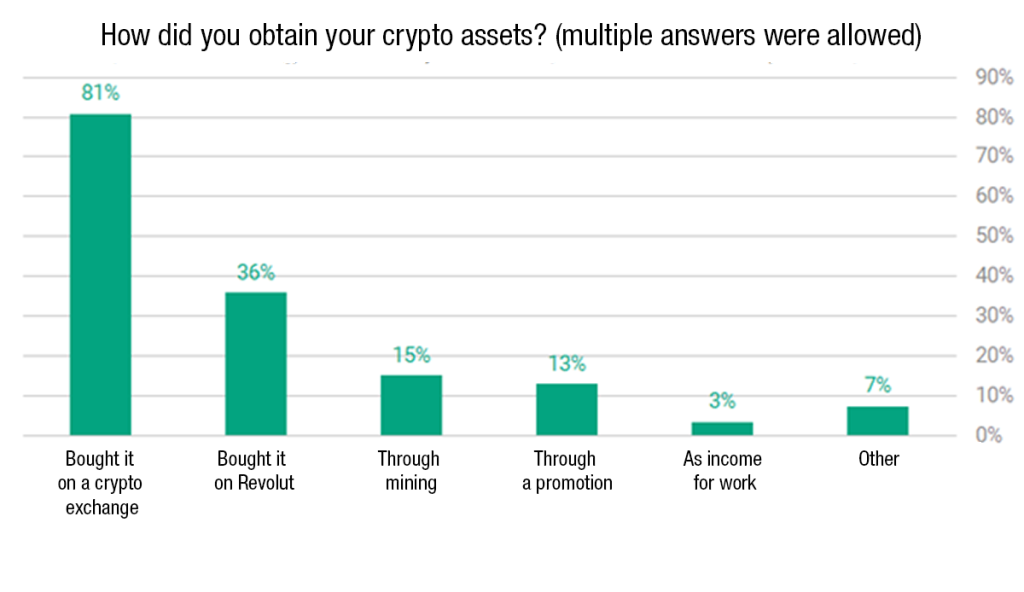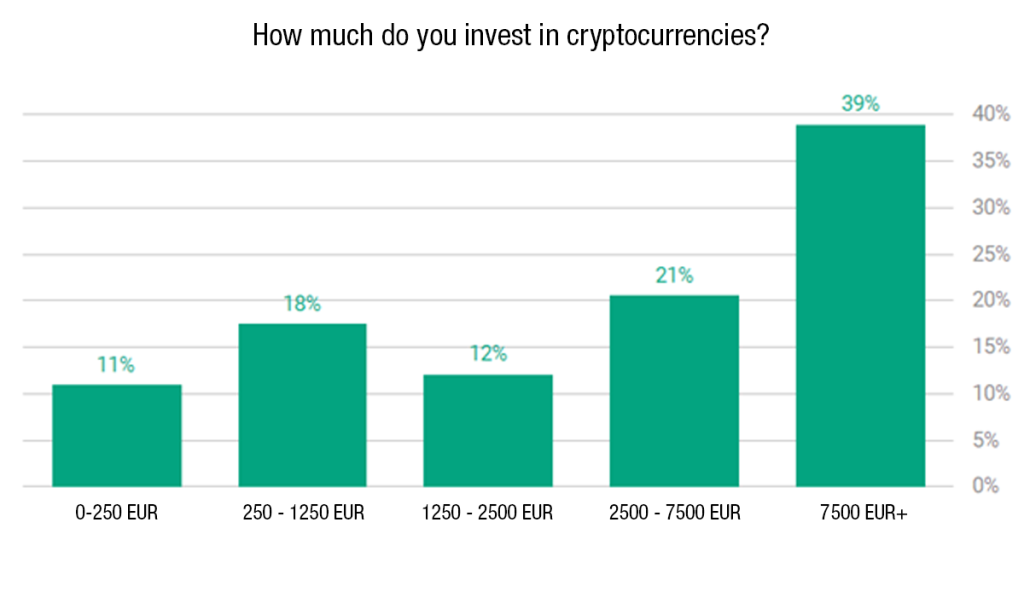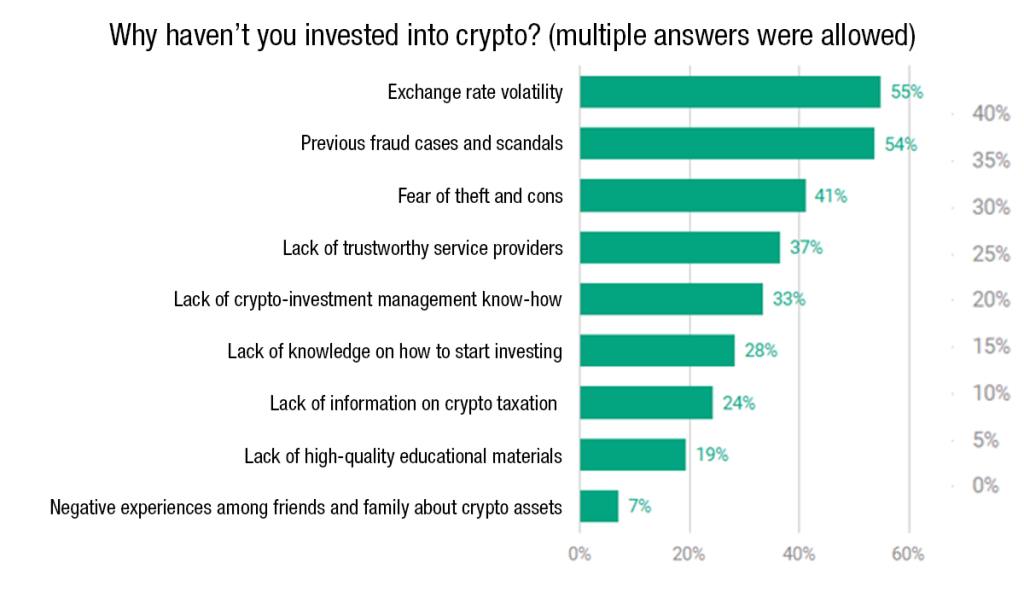The openness to investing in cryptocurrencies is surprisingly high in Hungary according to the joint cryptocurrency market survey by Portfolio and Dorsum. The survey was conducted among the readers of portfolio.hu. 74% of the nearly 1,500 respondents already own cryptocurrencies, and a significant portion of the others do not rule out future investments. Most investors are young, educated males, who perceive the high risks associated with these types of investment as acceptable.
As for the respondents of the survey, the majority live in Budapest (41%) or in other Hungarian cities (40%), while rural residents were represented to a much lesser extent (13%). 98% of the respondents have a high school diploma, 64% have obtained at least one degree previously, and 88% feel they are in a stable or good financial situation.
In these statistics, there were negligible differences between our respondents who own cryptocurrencies and those who do not. Meaning there is an extremely similar composition of the two groups based on their financial situation, education, and place of residence.
Among the less surprising data, it can be mentioned that the proportion of bank account owners and daily internet users is both 98%.
It is also striking that the proportion of male respondents was 93%, indicating that women were not yet as interested in the topic to make their voices heard in our questionnaire.
We are not in a bad position in terms of risk awareness
It is good news that while 77% of all respondents see cryptocurrencies as an appealing type of investment, this does not mean they are unaware of the high risks associated with the asset class. 85% of respondents believe that crypto represents a particularly risky form of investment. This suggests that most domestic followers in the crypto sector can be considered informed about the basics, and they take risks consciously.
Cryptocurrency exchanges are far ahead of Revolut
In the survey, we asked specific questions to cryptocurrency owners about their investment habits and attitudes. The majority of them manage their investments on centralized cryptocurrency exchanges, with 81% having traded on these platforms at least once (860 mentions). Revolut, with over 1 million customers in the Hungarian market, is also a popular option (35% have already purchased cryptocurrencies here – 383 mentions), but it lags cryptocurrency exchanges in the ranking.
The level of sophistication of Hungarian cryptocurrency investors is indicated by the fact that, in addition to traditional investment platforms, many have acquired such assets through other means. Roughly 13% have mined cryptocurrencies, and many have obtained various tokens as incentives (15%).

56% view their cryptocurrency holdings as serious investments, while others currently engage in trading more as a hobby.
39% of respondents own cryptocurrencies worth over 7500 euros, while for another 21%, this amount ranges between 2500 and 7500 euros. Others have entered the field more cautiously; for example, 11% own assets valued at less than 250 euros.

The world of blockchain is not only interesting because of cryptocurrencies
We also asked investors for their opinions on which blockchain-based platforms they use alongside the most popular centralized cryptocurrency exchanges (e.g., Binance, Coinbase, Kraken). 42% of respondents have already used one of the decentralized cryptocurrency exchanges (e.g., Uniswap, Sushiwap), and many (16%) have also used NFT trading platforms.
11% have already been in one of the metaverses, which is not particularly high considering that just 1-2 years ago, many people touted these virtual worlds as the future of the entire internet.
Cryptocurrency investors hold foreign currency and government bonds instead of NFTs
Back to cryptocurrencies. Experts have been emphasizing for years that most investors should not allocate more than 3-5% of their portfolios to this asset class. However, the question arises as to what other instruments members of the Hungarian crypto community invest in.
According to the findings of our survey, cryptocurrency investors prefer to hold
- foreign currencies (67%),
- Hungarian government bonds (45%),
- corporate stocks (45%),
- commodities (20%),
- and investment funds (18%).
Interestingly, foreign currencies and commodities were more prevalent in the portfolios of cryptocurrency investors, while among investors who stay away from cryptocurrencies, more hold investment funds and government bonds.
The market could grow with banking entrants – trust is a key factor
We also wanted to hear the thoughts of those who do not own cryptocurrencies. We asked them about the reasons for their decision against investing so far: the most common reason cited was significant exchange rate risks (mentioned by 55% of respondents). Almost equally weighted (with 54% of respondents mentioning) scandals related to recent years ranked second, while fear of fraud and theft (41%) ranked third as a deterrent factor for investments.
37% of respondents have not purchased cryptocurrencies yet due to the lack of reliable providers, which aligns with the fact that 49% would prefer to invest in cryptocurrencies through their traditional banking institution. However, currently, no bank in the domestic market offers such a service, leaving fintech companies and cryptocurrency exchanges as the only options, but they are surrounded by considerably lower investor trust according to the responses.

Caution is also indicated by those who are interested but prefer to start trading with smaller amounts. 65% of respondents said that if they were to ever invest in this asset class, they would likely enter with less than 4000 euros. Given the volatility and complexity of the assets, this is understandable, and therefore it is considered positive that a cautious approach is prevalent in this segment as well.
Featured image: portfolio.hu






